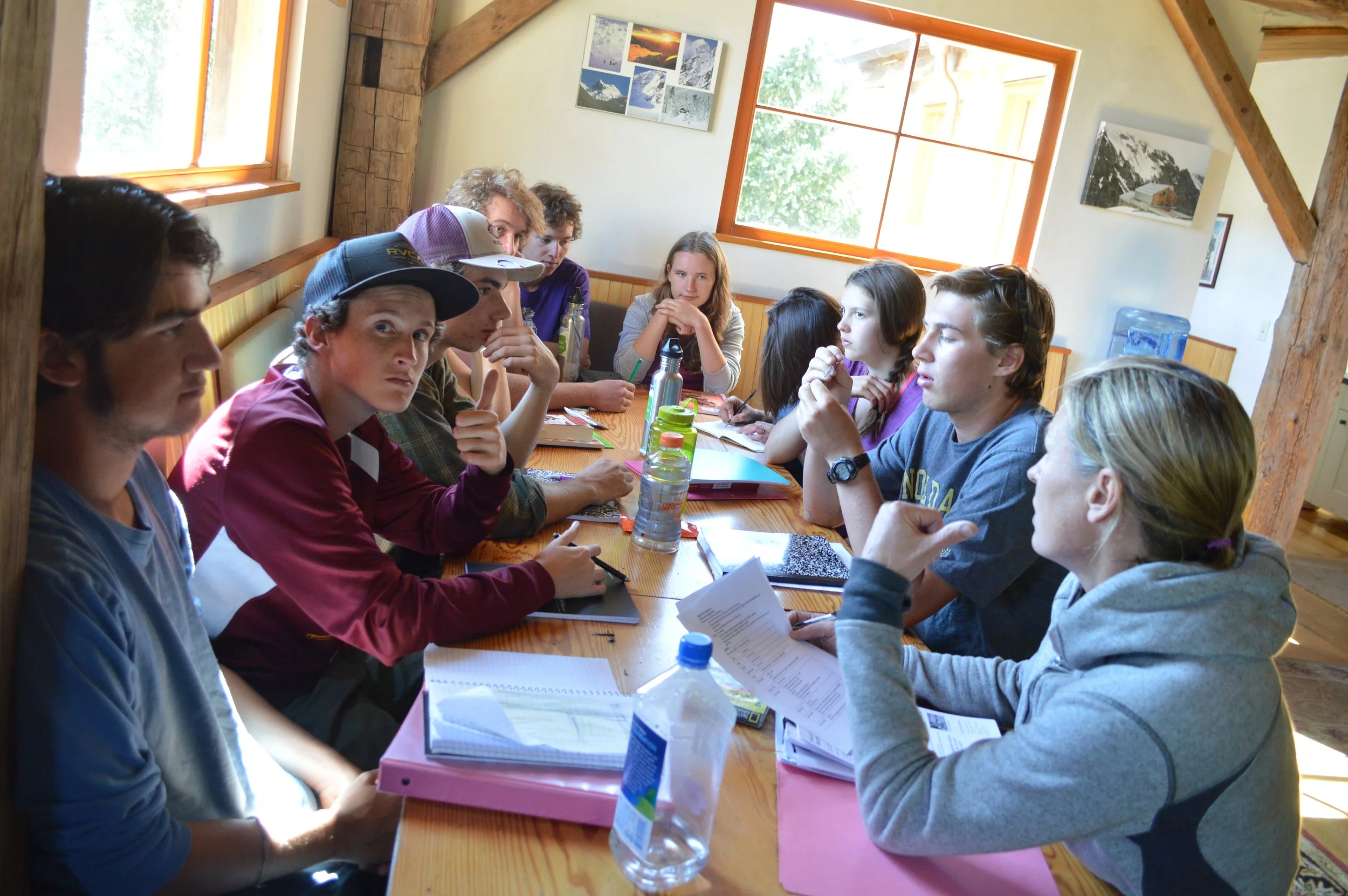
JMAC Blog
Preparing for College Interviews
Some schools offer applicants the opportunity to interview with an admissions officer or an alumni representative. Think of these as conversations rather than formal interviews. This is your chance to give the interviewer insight beyond your activities list and transcript. They already know what you’ve done — now they want to understand why you’ve done it, how you’ve engaged with your experiences, and who you are as a person.
Notes from Alumni Interviewers
Alumni Interviewer from Dartmouth College:
Before I interview students, I remind them that admissions already has their grades, test scores, teacher recommendations, and extracurriculars — the whole résumé. I tell them to fill in the gaps for me. I love when students share stories that reveal something of their character. For example, one student told me about his younger brother’s chronic illness and how it shaped his family; it showed me how thoughtful and sensitive he was. What I don’t enjoy are interviews that sound like a list of achievements, service trips, or science camps. I want to hear something real — some heart, some vulnerability. That’s what makes an impression.
Alumni Interviewer from Princeton University:
Be human. Relax and have an interesting conversation. Interviewers love to meet students who show poise and social/emotional intelligence. Think about what you didn’t have room for on your application and use the interview to highlight that!
Conduct a couple of mock interviews before the real thing to reduce filler words like “um” or “like.” My biggest pet peeve: students who don’t have any questions to ask. Not having thoughtful questions suggests a lack of interest. Show your earnest enthusiasm.
What Interviewers Are Looking For
Interviewers pay attention not only to what you say, but also how you engage in the conversation. Consider:
How you show interest through tone, posture, and facial expression
The rhythm of the conversation — listening, pausing, and responding thoughtfully
The stories and examples you choose to share
Suggestions to Prepare
Practice aloud. Review sample questions and answer them verbally, not just in your head.
Pause before answering. A short pause helps you gather your thoughts and signals maturity.
Eliminate distractions. Turn off your phone and notifications. Choose a quiet, well-lit location for Zoom interviews.
Mind your affect. Your facial expressions and body language communicate engagement and confidence. Practice looking interested, open, and relaxed.
Be authentic. Use anecdotes and specifics. Focus on what experiences mean to you, not just what you’ve done.
Ask questions. Bring a few thoughtful questions about the school or student experience — this shows curiosity and genuine interest.
Questions to Practice Aloud
These are conversation prompts rather than strict questions. Think of them as content to weave into your discussion:
Tell me about yourself. (Your story/introduction.)
Where do you go to high school, and what has defined your path there?
What activity is most important to you, and why?
Why are you interested in this school?
What have been some of the greatest influences, experiences, or people in your high school years?
Tell me a little about your family and how they’ve influenced you.
How has the environment where you grew up influenced you?
What do you do on a day when no one tells you what to do? What genuinely brings you joy?
How would your best friend describe you?
What academic subjects are you most interested in right now, and why? (Provide specific examples.)
What are you most proud of from your high school experience?
Tips for Preparing Your Answers
Why this school?
Don’t give a generic answer. Most schools have excellent professors and programs.
Stand out by telling a specific story from your campus visit or highlight a particular academic department or club you’re excited about.
Show you’ve thought deeply about why the school is a good fit for you.
What is your academic passion?
If you’re unsure, talk about your excitement to explore new subjects.
Give examples of how high school experiences sparked your curiosity.
Interests outside the classroom / proudest achievements:
Be specific and use anecdotes that reveal your passion and character.
How would your friends describe you?
Be honest. Don’t tell the interviewer what you think they want to hear.
6 Things to Do After You Submit Your College Application
Congratulations! After hours of writing and editing essays, perfecting your activities descriptions, and adjusting text to fit word limits, you’ve finally submitted to your ED school and/or some of your EAs (with those Nov. 15 deadlines still looming).
Take a deep breath and give yourself some well-earned credit. Then exhale, refocus, and commit to these six things:
1. Check Your Email: Open All Emails From Every School and Create Admissions Portals
Within a week of submitting, you’ll receive emails from each school. Open and read them carefully—they contain instructions and links to create your admissions portals. You’ll need a username and password for each school, so record them in one place. Check your portals regularly, especially in the first few weeks after submitting.
Through these portals, you can:
Confirm all application materials were received
Fix any issues that may delay review
Submit new test scores from later test dates (ie Oct/Nov test scores that may not have been published when you submitted)
Track your admission decisions
2. Make a Plan for Your Remaining Applications and Deadlines (Meet With Me!)
Don’t take your foot off the gas. You’ve built momentum from your ED/EA submissions—keep it going. Let’s create a plan for your Nov. 15, Dec. 1, and January deadlines, balancing completion with Thanksgiving, finals, winter break, and extracurricular commitments.
3. Map Out Remaining Supplemental Essays Using What You’ve Already Written
This may seem obvious, but it’s easy to overlook. Many students start a new supplemental essay when they’ve already written a stronger version for another school. Before drafting something new, review what you’ve already written—you can often reuse or rework entire paragraphs or themes. After four or five supplements, repurposing is not only smart, it’s strategic. Students often miss these overlaps on their own, so let’s review them together.
4. Preview the Application Process for Cal State and UC Schools (Due Nov. 30 & Dec. 1)
For those students applying to UC and Cal State schools, you’ll need to complete their specific applications on the Cal State and US plastromrs, respectively. Both use the A–G course reporting system, require no transcripts or letters of recommendation, and are test-blind (test scores are used only for placement).
The UC system requires four 350-word Personal Insight Questions (PIQs) selected from eight prompts, plus an expanded Activities List. Most students can repurpose Common App and supplemental essays for at least three of the four PIQs.
The Cal State system has no essays, but does require self-reporting A–G classes and activities. Plan time to familiarize yourself with both systems before their deadlines.
5. Stay Committed to Your Academics and Extracurriculars
Even if you receive early admission offers, colleges still require mid-year and final reports. Offers can be rescinded if grades drop or if your engagement changes significantly from what was presented in your application. The most common reason for a rescinded offer, however, is evidence of poor judgment—often on social media. Be smart, maintain your integrity, and stay focused.
🎧 Recommended listen: Admissions Beat Podcast – “Why Senior Courses Matter”
6. Keep a Healthy Perspective
Admission decisions will start rolling in mid-December, bringing both good and bad news. Remember: an admission decision reflects an evaluation of your application, not your worth as a person or student. For schools with an admission rate of 5–10%, over 90% of applicants will not be accepted. Keep a balanced perspective and focus on what you can control.
🎧 For perspective and insight:
**Ask Lisa: The Psychology of Raising Tweens & Teens – Episode 236: “Dream School: How Do You Find the Right College for Your Teen?” (featuring Jeff Selingo) — Covers how to rethink “dream school” and find the best fit for your child. Lisa Damour, PhD+3Lisa Damour, PhD+3Apple Podcasts+3
**Admissions Beat – Season 5, Episode 12: “Choosing Your Senior Year Courses and Why That Matters” — Explains why your senior-year course choices and performance still matter in college admissions. admissions.dartmouth.edu+1
Admissions Beat – “Good News / Bad News” — Host Lee Coffin talks with Chris Gruber (Davidson College) and Kate Ramsdell (Noble & Greenough School) about how to process college admission decisions—both acceptances and denials—and how to move forward with clarity and perspective. (admissions-beat.simplecast.com)
Pathways to College Skiing Webinar
Watch to learn the process of NCAA ski recruiting and options in the USCSA.
Watch this presentation from 2023 given in collaboration with Jackson Hole Ski Club to educate parents and student/athletes about the NCAA recruiting process and options as well as USCSA opportunities.
What is an Independent Educational Consultant, aka Private College Counselor?
An IEC is an Independent Educational Consultant. IECs have different specializations, including boarding school admissions, college counseling, graduate school admissions, therapeutic programs, sports recruiting, navigating discipline issues, financial aid, and international school admissions.
What is an IEC?:
An IEC is an Independent Educational Consultant. IECs have different specializations, including boarding school admissions, college counseling, graduate school admissions, therapeutic programs, sports recruiting, navigating discipline issues, financial aid, and international school admissions.
Are there professional organizations and established criteria for professional development among IECs?
Yes. As a parent, I would be wary of hiring an IEC who is not part of a vetted, reputable professional organization and who does not engage in regular professional development. I am a current member of the Independent Educational Consultants Association (IECA), Higher Education Consultants Association (HECA), and Rocky Mountain Association for College Admissions Counseling (RMACAC). These organizations require members to abide by a code of ethics and for members to participate in professional conferences, visit schools, and stay current in the field. They also connect IECs with incredible resources, mentors, experts, college admissions officers, and more.
What does an Independent Educational Consultant do?
In the case of college counseling, an IEC uses research, data, experience, and professional networks to work individually with families to support and advise them in the college selection and application process. JMAC works to do the following:
To reduce the stress and eliminate the mystery of the college search and application process and make it transparent, organized, inspiring, and achievable.
To facilitate and support students in finding best-match colleges and universities.
To facilitate and support students in planning and creating the strongest college application possible. To help them tell their story.
What are Jesse’s credentials and experience:
Jesse has an M.S.Ed. in school leadership from the University of Pennsylvania Graduate School of Education and an undergraduate degree from Dartmouth College, where she also captained the women’s ski team and competed in four NCAA Championships. She worked for over 15 years in independent schools in VT, CA, and CO, teaching every class of English and history from seventh to twelfth grade, including IB classes. She has worked as a college counselor and director of curriculum and instruction in a school setting. She understands high school, she understands students, and she understands college admissions. She started JMAC Academic and College Counseling in 2022. She has published articles in SkiRacingMedia about the path from high school to college skiing and stays current on NCAA, USCSA, and FreeRide skiing trends. For more info about JMAC, visit https://www.jmac-consult.com/ and follow: jmac_college_counseling on Insta.
Who uses Independent Educational Consultants?
According to data collected by IECA, the typical student who hires an IEC attends a large suburban school, but clients are diverse: suburban, urban, and rural. It is common for private school students to hire an IEC to support them in the college selection and application process. IECs are encouraged and supported through professional organizations to offer discounted services to students with socioeconomic circumstances that make private counseling prohibitive.
Why is there a need for Independent Educational Consultants and Private College Counselors?
According to data collected by IECA, the current student-to-counselor ratio at US public high schools is 385:1. The average public school student receives 38 minutes of personal college counseling over four years of high school.
Aren’t most IECs exorbitantly expensive and frowned on by college admissions?
No, only 9% of IECS charge more than $10,000 for a multi-year college advising package. Although the 2019 Varsity Blues Hollywood college counseling scandal made headlines, that type of practice and pricing is certainly not the standard. IECs who are members of professional organizations abide by a code of ethics that states they will not fabricate any part of a student’s application or write essays for students, along with standards on referrals, confidentiality, and communication. Everything a professional IEC does is ethical and transparent. College admission officers work with professional IECs by giving webinars through professional organizations and offering school tours to keep them informed about their campuses and programs. They realize the value of IECs in helping student extend their search and find a best-match college, and they see a diverse demographic benefiting from working with an IEC.




